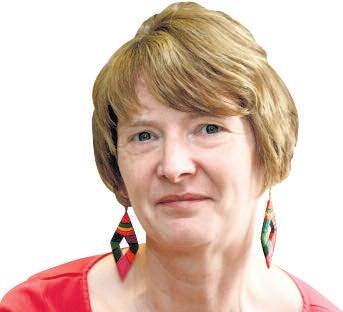'Children's lives can be changed because of the foster family in which they live'
National development manager – social care, Children’s Workforce Development Council (CWDC)

Your support helps us to tell the story
From reproductive rights to climate change to Big Tech, The Independent is on the ground when the story is developing. Whether it's investigating the financials of Elon Musk's pro-Trump PAC or producing our latest documentary, 'The A Word', which shines a light on the American women fighting for reproductive rights, we know how important it is to parse out the facts from the messaging.
At such a critical moment in US history, we need reporters on the ground. Your donation allows us to keep sending journalists to speak to both sides of the story.
The Independent is trusted by Americans across the entire political spectrum. And unlike many other quality news outlets, we choose not to lock Americans out of our reporting and analysis with paywalls. We believe quality journalism should be available to everyone, paid for by those who can afford it.
Your support makes all the difference.The most important relationship a child or young person is likely to have is with the people who care for them – and for some that will mean their foster carers. This is a key relationship and it is vital to make sure it is strong and supportive of the child's needs.
Foster carers make an invaluable contribution to our society. Their skills and expertise can make a fundamental difference to a child or young person, and children's lives can change because of the safe, caring and supportive foster family in which they live.
Carers come from varied backgrounds but they all share a common interest in wanting to work with children, to help children and feel they have something to offer. If foster carers are to continue to make a positive difference, they need access to the right kind of learning and support.
Children's Workforce Development Council (CWDC) is committed to making sure that all those who work with children and young people have the right skills and knowledge, training and support needed to do their job.
That is why CWDC launched the Training, Support and Development (TSD) Standards for Foster Care in 2007.
The TSD standards are designed to ensure that there is consistency in what foster carers understand their role to be and the skills they need. All approved foster carers are expected to reach the TSD benchmark by 2011.
This year CWDC held a series of events to hear directly from foster carers and service providers so that CWDC could understand what still needs to be done to meet the 2011 deadline. The events highlighted the strong commitment of foster care agencies and of foster carers to the standards.
Agencies were keen to share a wealth of examples of good practice and discussed what additional support was needed.
As a result of the feedback, CWDC is developing support materials inviting agencies to offer their own case material and examples; this will be published later in the year.
CWDC has worked closely with the Fostering Network and has sponsored the development of materials on peer mentoring for foster carers and a DVD and other training materials focusing on innovative learning techniques around the standards.
It became clear when the Government launched the Aiming High for Disabled Children programme that we needed to consider the position of carers who offer short-break placements for children with complex health and behavioural needs. So we have worked with our colleagues who provide short breaks to adapt the original TSD standards to reflect the distinct role of the short-break carer in providing short periods of care. These will be launched in June.
In addition, agencies can now access funding through CWDC's Increasing Skills in Social Care fund to support foster carers undertaking an NVQ Level 3 in Health and Social Care.
From May 2009, there will be funding to all agencies where foster carers are not pursuing an NVQ.
CWDC will continue to allow stakeholders to share their views on how we support foster carers and their provider agencies. This is especially important as we begin to explore what additional skills and knowledge may be appropriate for foster carers.
Our work on the TSD standards will help to inform the next stages in social care professional development and ensure foster carers feel fully included as members of the social-care workforce.
Join our commenting forum
Join thought-provoking conversations, follow other Independent readers and see their replies
Comments